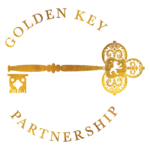SOPs are a giant waste of my time, no one follows them!
The phrase that I hear more often than not when I come in as fractional COO.
Tell me if this sounds familiar. You spend hours, maybe even days or weeks putting together some SOPs so you can get out of the weeds and your team can run with the ball… only to have you team either not use the SOPs, or deviate significantly from them, leaving you stuck in the hamster wheel and wondering why the heck you even wasted the time.
Ever been there? I actually was here last week, which is why I wanted to talk about this SOP conundrum. And, for the record, I feel you. Boy did it suck to see something that I poured my time and knowledge into being cast aside like those letters from Spectrum trying to get you to switch internet providers.
This frustration is perhaps one of the most common I see in my business owner clients when we start talking about how to get them out from under their business.
So let’s talk about it. Are SOPs worth it? Are they a waste of time? Should us business owners be spending precious time putting them together rather than true income producing activities that move us forward?
The answer is no, and yes.
The fact I was reminded of after the sting of the team not using my SOP in my absence was this: SOPs are not made for people who know how to do something and have the institutional knowledge.
They are made for the people who don’t have someone around them with the knowledge and they need those navigational beacons to stay the course.
They are meant to be resources to enable your team to follow the rule of three (which I will talk about in a moment)
What this means in very simple terms is this: if you got stranded on a desert island with no wifi or slack connection could your team run the business without your brain?
If the answer is no then there is a gap that needs to be urgently filled in either team, process (SOPs), or knowledge sharing — you know when you actually TELL the team what your want and are thinking rather than forcing them to be ineffective mind readers —
… or because I have been doing this for 12 years, probably all three.
SOPs are like your business’s user manual. If someone were to come in from the outside and push the “on” button, could they operate your business?
I am not saying operate at full capacity per say, but get it going, keep it online and moving?
If the answer is again no then as Ricky Ricardo was famous for saying to Lucy, you got some splainin’ to do!
So if the thought of putting together SOPs sends a cold shudder down your spine or you get sweaty palms just thinking about it, fear not.
I am going to leave you with three things that will make your SOPs creation a heck of a lot easier – and maybe, dare I say, fun!
First, leverage.
One of my favorite SOP myths to bust is that you need them BEFORE you hire.
While this would be very helpful, chances are you are hiring because you need support and to multiply time, so why does being bogged down in SOPs make sense. Short answer: it doesn’t. Here’s how to create massive leverage with your team creating SOPs with you.
During your new hires onboarding process (the first minimum 90 days) set the expectation for them to document the processes you are walking them through to get them up to speed with the expectation that they will be using them to train someone in the future.
This is a page I took out of my years in the medical field. It is a training called see one – do one – teach one, which I will leave for another time.
In this scenario you are setting two birds free with one key and I call that a win win.
Know this: you don’t have to be the only one creating them. In fact I recommend you don’t. If the info lives in your brain, create a framework and have your team support to fill in the gaps with what I am about to share.
Two, work smarter not harder.
This, guys, could be my favorite tip so grab your highlighter or note pad.
Every day you are doing projects and tasks that probably need an accompanying SOP which means that the tool you need to make your best friend is Loom.
This little baby will quite literally change your whole life if you let it. I guarantee it.
Here’s how this works in practice. Say you are about to go through a monthly project or task. Instead of just buckling down and doing it, you just add one step. You hit record.
So now loom is your silent videographer allowing you to both talk through and show in real time how you do a process. Doesn’t matter if it is on your desktop or your browser, it will follow right along like your trusty business bestie.
I use Loom for SOPs, support tickets, hiring, training, you name it, I have probably used it to record some sort of process to make it easier.
Bonus, after you have it you can have someone on your team who is a SOP Superhero take the video and make it into an SOP to add to your company KB (knowledge base).
Extra bonus point… if your work is primarily in the browser vs desktop mosey on over to Scribe.com – it quite literally will scribe your entire process. It’s pretty dang cool and will save you hours of time.
The reason I love this approach so much is because I see time and time again how teams being able to watch the expert do the process allows everyone to avoid any curse of knowledge biases or blindspots you have because you already “know all the things.”
Lastly, get ruthless with simplicity.
I am going to add a trigger warning because this might really upset some of you who love to over explain.
There is a law of diminishing returns that comes into play with SOPs and it just so happens that most of the time it is because we suck at simplifying.
And you know what I say:
As a business grows it should get MORE simple, not more complicated.
Simplicity scales. Complexity crushes.
So my advice to you is to remember two things about SOPs:
First, they are not set- it-and-forget-it things, especially not in this rate of change world.
They are living breathing things that need to be weeded through from time to time.
They should get better as time goes on – and by better I mean more clear and simple. If you can’t remember the last time you looked at an SOP – there’s your sign.
And second, more is not always better.
My best advice for finding the Goldilocks length for SOPs is asking yourself what the definition of done is (so you are clear) and then asking yourself if they skip this step or don’t get it perfect is the definition of done doomed. If the answer is no, then most likely you can take it out.
Again, launch and learn – and be open to feedback from the team.
If your team isn’t following them or adopting the SOPs, find out why. Is it a time gap, knowledge gap, buy-in gap, overwhelm? There are lots of reasons a team struggles with SOPs so get to the root so you can get everyone on the same page.
I believe that SOPs hands down can be the best investment in helping you get out of the weeds AND get the institutional knowledge out of your brain. Getting you out of the knowledge bottleneck is the biggest step forward to increasing your businesses’ lifeblood and lifetime.
Until next time.
Lauren








